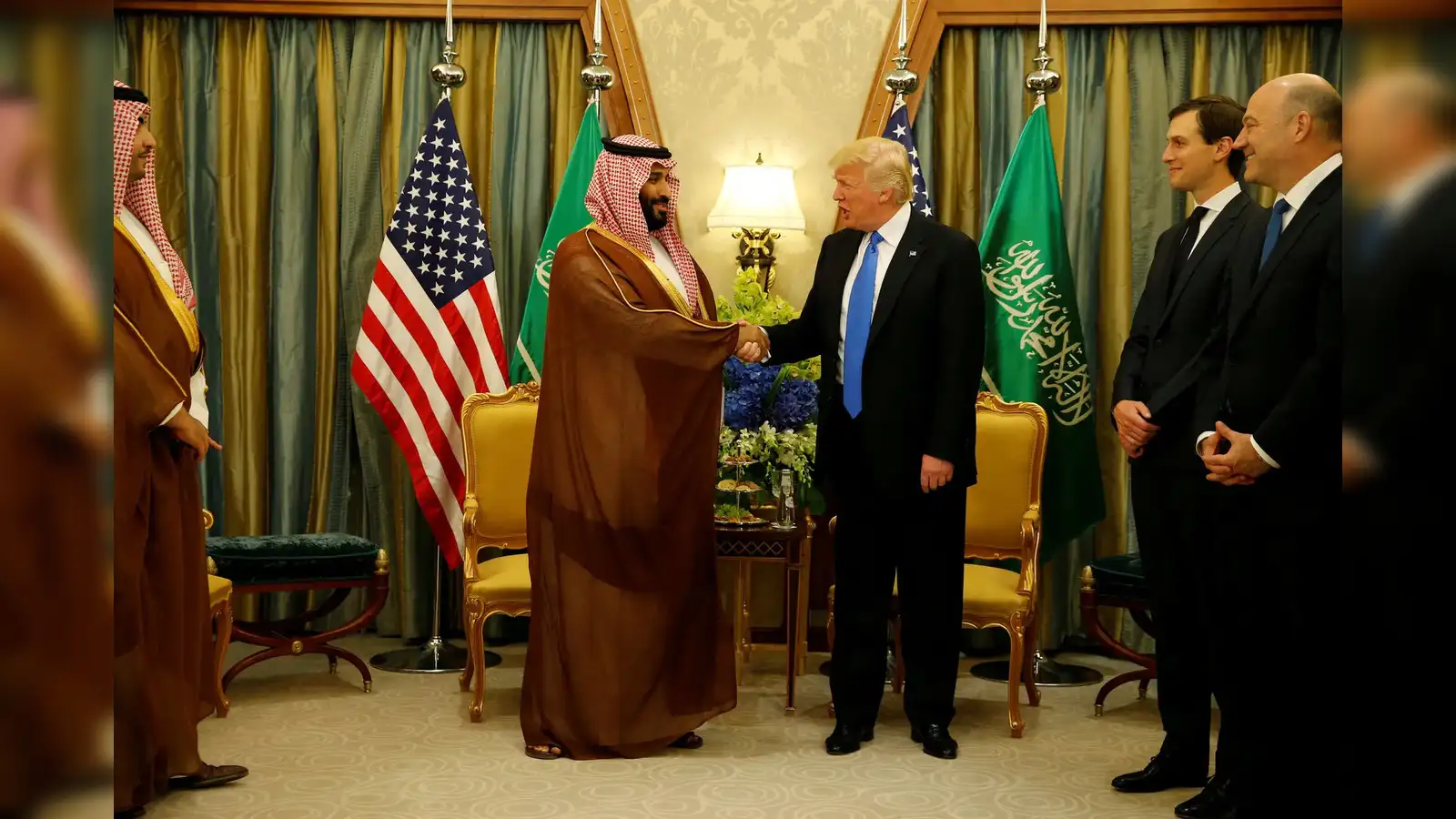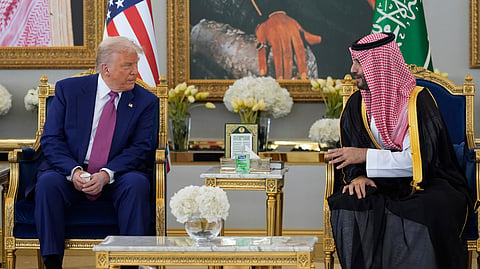Former U.S. President Donald Trump began his Middle East diplomatic push with a high-profile visit to Saudi Arabia on Tuesday, where he was warmly welcomed by Crown Prince Mohammed bin Salman. The two leaders met at the Riyadh airport for a traditional coffee ceremony before heading into closed-door discussions focused on a sweeping agenda: the Iran nuclear threat, the war in Gaza, regional energy cooperation, and major U.S.-Gulf investments.
Trump’s arrival in Riyadh marks the start of a four-day Middle East tour, which includes stops in Qatar and the United Arab Emirates. This is his first visit to the region during his second term. Notably, the countries on his itinerary—Saudi Arabia, Qatar, and the UAE—are all sites of Trump Organization real estate developments, raising questions about the intersection of business and diplomacy.trump-afrikaner-refugee-program-2025
US-Saudi Investment Conference and Oil Talks

Later on Tuesday, Trump will attend a high-profile U.S.-Saudi investment conference, expected to produce announcements on cooperation in artificial intelligence, energy, and potential arms deals. Earlier this month, the administration approved a $3.5 billion air-to-air missile sale to Saudi Arabia amid shifting regional security dynamics.
Energy remains a critical point of discussion. Saudi Arabia, the de facto leader of OPEC+, has increased oil production to help stabilize global prices, in line with Trump’s efforts to curb inflation and weaken Russia’s war economy. But with oil prices now at just $64.77 per barrel, well below the kingdom’s breakeven point of $96, the long-term sustainability of such cooperation is uncertain.
“Lower oil prices don’t kill Gulf diversification programs, but they make them harder,” noted Jon Alterman of the Center for Strategic and International Studies.
Iran, Yemen, and Regional Discord
Trump’s Middle East diplomacy is also shadowed by his surprise decision to end U.S. airstrikes on Iran-backed Houthi rebels in Yemen. The announcement caught Israel off guard, exacerbating already strained ties with Prime Minister Benjamin Netanyahu. The Houthis have agreed to halt attacks on international shipping routes, but Israel remains skeptical and angry about being excluded from talks.
“Israel will defend itself by itself,” Netanyahu said following Trump’s truce announcement. “If our American friends join us, all the better.” Read more about this policy shift in our coverage of Trump’s ceasefire with the Houthis.

Snub to Israel, Signals to Palestine
In a move raising diplomatic eyebrows, Trump chose to skip Israel entirely on this trip — a sharp contrast to his first-term visits. Instead, he’s aiming to revive normalization talks between Israel and Saudi Arabia, first launched under the Abraham Accords. But Saudi officials insist that any deal must include real progress toward Palestinian statehood.
Last week, Crown Prince Mohammed bin Salman hosted Palestinian Vice President Hussein Sheikh in Jeddah, signaling to Trump that Riyadh remains committed to the Palestinian cause.
“Don’t even think of asking us to show any goodwill toward normalization without progress on Palestine,” said Hussain Abdul-Hussain of the Foundation for Defense of Democracies.Trump Halts Yemen Airstrikes in Surprise Announcement
Persian Gulf or Arabian Gulf?
Trump hinted he may also change the official U.S. designation of the Persian Gulf to the “Arabian Gulf” — a shift likely to anger Iran. Iranian Foreign Minister Abbas Aragchi warned such a move would provoke “the wrath of all Iranians from all walks of life.”
Looking Ahead
Trump’s Mideast swing will culminate in a meeting with the Gulf Cooperation Council on Wednesday, before he departs Riyadh. With his signature transactional diplomacy back in full display, Trump seeks to project strength, secure strategic deals, and demonstrate that U.S. alliances in the Gulf remain robust — even if Israel is temporarily sidelined.
This follows Trump’s recent controversial move to create an expedited refugee program for white South Africans (Afrikaners), which has drawn mixed reactions at home and abroad.